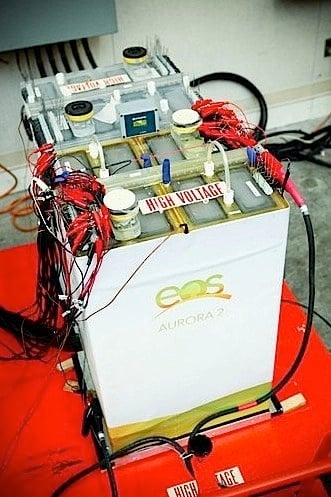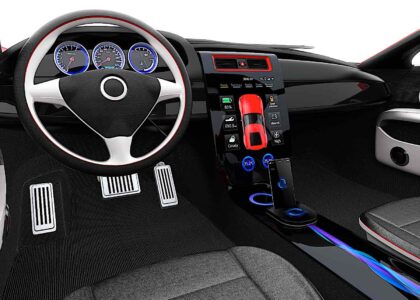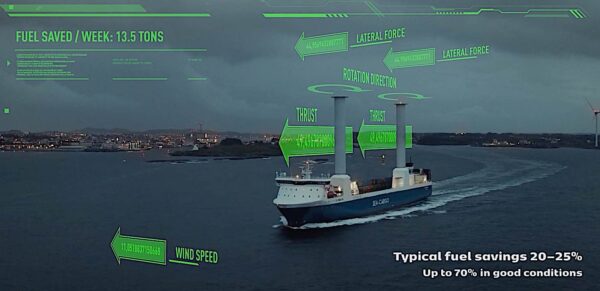The need for energy storage systems can be seen clearly in a simple but dramatic statistic presented by a company that claims to have the answer. The United States has 46 days of oil storage capacity and 33 minutes of electricity storage capacity. Most of that is pumped hydro, accounting for more than 99 per cent of all capacity.
The quest for an energy storage system that could relieve that shocking shortage of stored electricity has often been called the holy grail for energy generating and transmission companies. With an effective storage system in place, utilities could buy power at off-peak rates and then use it at peak hours when it costs users more. Storage would also allow better use of feed-in electricity from wind and solar generators.

A US company says it has the solution, and several big US and European utilities are preparing to test the product. Eos Energy Storage says that its zinc-air battery solution, unlike others that are already available, is inexpensive. Eos, according to the company president, offers a much cheaper alternative to building more power plants.
Claiming to have resolved the “historical challenges of zinc-air rechargeability,” Eos says that its proprietary zinc hybrid cathode—Znyth—has proven itself in tests, achieving more than 5000 battery cycles with no physical degradation. A company presentation goes even further, stating that the battery has reached more than 10,000 cycles, giving it a “realistic” life expectancy of thirty years.
The battery is “inherently safe and self-healing” and offers the lowest cost energy storage technology available. A further benefit is environmental: zinc is plentiful, inexpensive, and locally available in North America. The battery, which contains no toxic chemicals, includes recyclable materials.
But the cost is what is likely to make it most appealing to utilities looking for a large-scale solution. While other battery technologies available today can cost up to $1,000 per kilowatt hour, the Eos system, which in its present form is the size of a small refrigerator, would cost just $160 per kilowatt hour. The company’s target is to market storage batteries of 6MWh (1 megawatt stored for 6 hours) in a 40-foot ISO container. This amount of storage capacity would be sold for $1000, the company says.
Read more about the Eos battery system here.

































